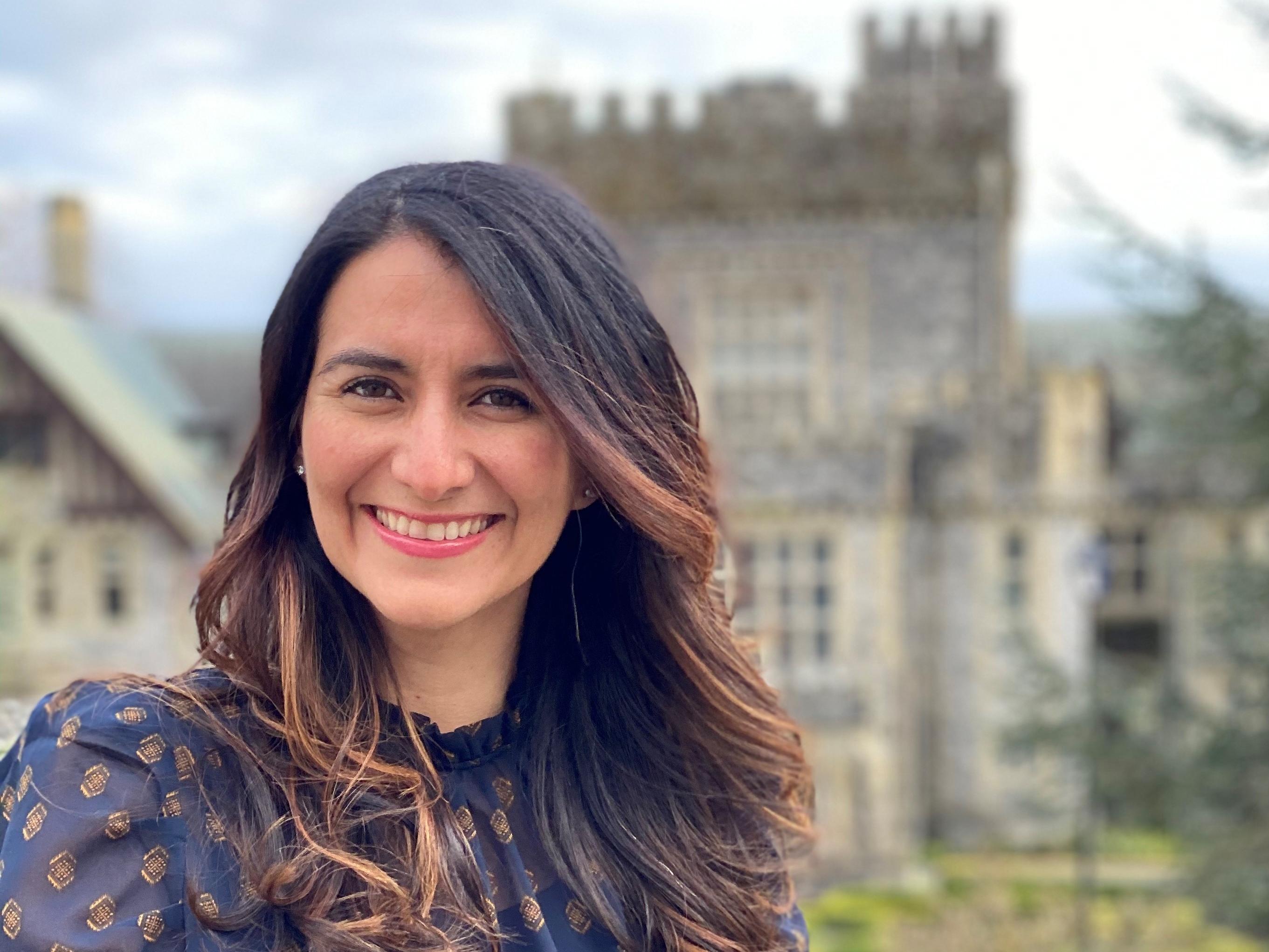Beneficiary voices in international development fundraising campaigns

The School of Leadership Studies would like to congratulate MA Global Leadership graduate, Victoria Ninaber, for her recent co-publication in the Journal of Philanthropy and Marketing.
Based on her Master’s research, and co-authored with Rob Mittelman, this article explores the inclusion of beneficiary voices in creating international development fundraising campaigns. Readers can find an online version of the article through RRU’s library and a summary is included below.
Victoria’s Story
“Post-secondary education was a dream I wanted to pursue but the timing didn’t occur until later in my career. Stepping out felt daunting and nerve wracking, especially while still juggling full-time work and caring for a young family. But with the help of friends, teachers, and my cohort, I found myself in an environment that fostered personal growth and encouraged questions of complex global systems.
My original Master’s research focused on first-hand beneficiary input in a cross-cultural context but COVID-19 caused this work to be unfeasible. Rather than abandoning the initial concept, my academic advisor encouraged me to consider the topic from another leverage point.
This began the engagement with various development agencies to understand how they incorporate beneficiary input in their fundraising appeals.
What started as an intimidating journey, developed into the opportunity to see that our global community wants more diverse voices and representation but with the need for a framework to support that intent.”
Article Summary
Charitable fundraising appeals for international development created for potential donors in the Global North are often, if not always, designed without the inclusion of voices and insights from the intended beneficiaries in the Global South. The implications of these appeals, void of beneficiary input, may serve to proliferate poverty porn and racial stereotypes, promote paternalistic and colonial thinking, and strengthen white savior syndrome. This exploratory paper examines the need for a beneficiary-centered Code of Ethics. A framework, based on the four major findings, is proposed that begins with beneficiary input and considerations offer charities an inclusive method for the design of future fundraising appeals and a way to fulfill their responsibility in how the beneficiary is depicted and the societal understanding of their situation.
Invitations to participate in the study were sent to fundraising professionals in Canadian, non-profit, Christian charities with a common focus on international development and reporting annual donations of $30,000,000 CAD or less. The rationale for this selection criteria is further explored in the full article. A purposive sample of seven individuals in various international development charities—whose roles and responsibilities related to fundraising at a director level—accepted the invitation and participated in a two-stage study that included one-to-one interviews followed by a focus group.
The four major findings are as follows:
1. First, while practitioners understood the need to represent the beneficiary accurately and truthfully, the policies that would define how to portray such situations were not formally written.
2. Second, the inclusion and input of beneficiaries within fundraising appeals was a noted gap throughout the interviews.
3. Third, the development of a beneficiary code of ethics must begin with beneficiary engagement.
4. Finally, there was agreement that for a beneficiary code of ethics to be successful, a governing body that upholds a measure of accountability is necessary.
In conclusion, although there are codes of ethics surrounding the treatment of donors, the management of funds within charities, and the frameworks for community-based programming; a gap lies in how the beneficiary is portrayed within fundraising. A fundraising strategy inclusive of the beneficiary, beyond the desire to raise funds, is currently absent in many charities’ campaigns and fundraising practices.
Reference
Ninaber, V., & Mittelman, R. (2021). Exploring the inclusion of beneficiary voices in international development fundraising campaign creation. Journal of Philanthropy and Marketing. https://doi.org/10.1002/nvsm.1736 [online first]